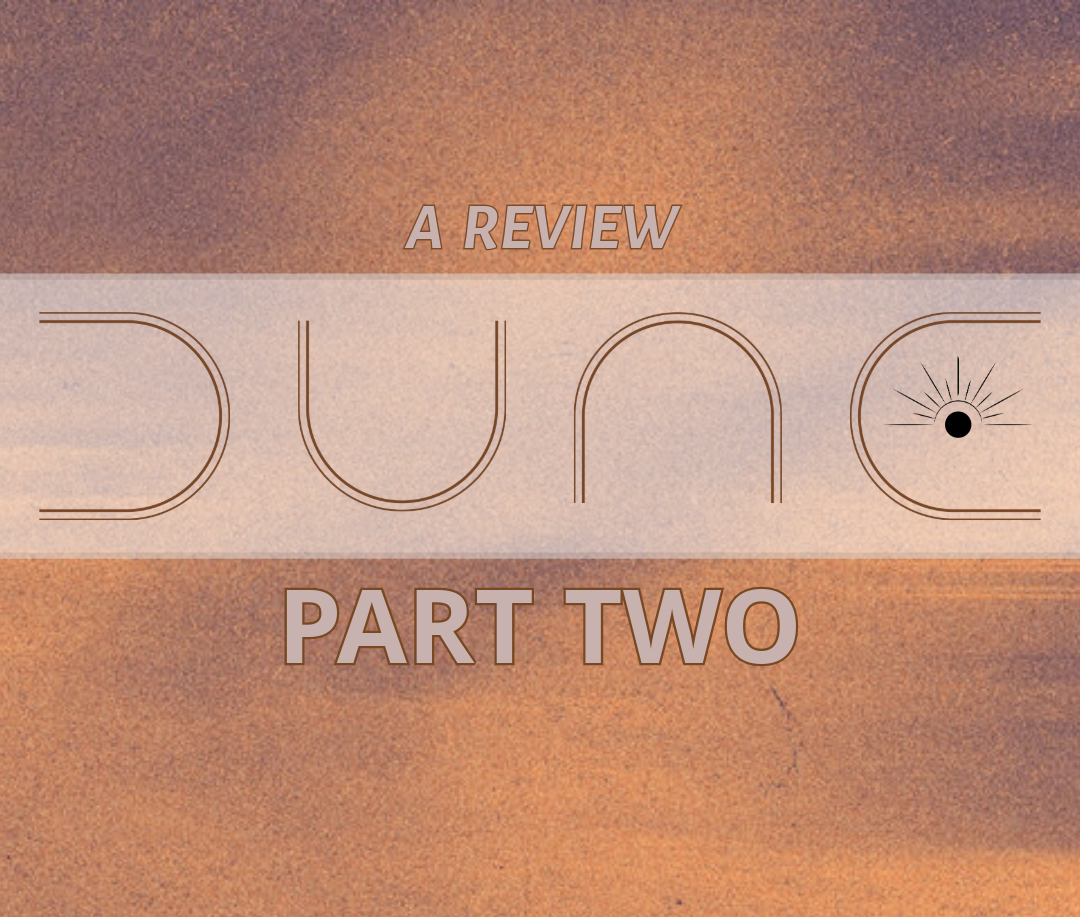Dune was considered an unadaptable story by many, and for decades, this held true. With Jodorowsky’s Dune never getting off the ground, and David Lynch’s Dune falling flat of what fans and critics wanted, it seemed that the iconic sci-fi story would never receive a faithful adaptation to the cinematic screen that satisfied fans and critics alike. Director Denis Villeneuve has accomplished this once-unachievable balance through both faithful adaptation and adjustment for the sake of modern audiences.
The film picks up almost directly after the first film. It follows Paul Atreides and his mother, Lady Jessica Atreides, after the murder of their family and the death of Paul’s father.
They are forced to flee deep to the unforgiving desert of Arrakis, fleeing the city of Arrakeen. There they are forced to learn the ways of the Fremen, the native people of the planet. The film follows Paul as he acclimates to their culture, society, and beliefs.
The plot strikes a perfect balance between a story of emotional vengeance and noble rebellion. While this could’ve easily become a jumbled mess of plotlines fighting for the spotlight, the film maintains its steadfast focus on the Fremen.
Even when it strays away from them, these other scenes maintain and bolster the plot’s momentum.
One of the greatest triumphs of the film is derived from the immense talent of the actors, each delivering a captivating and nuanced performance. While all the performances are amazing and deserve to be lauded, one stands out the most in terms of its ability to invoke emotion.
Timothée Chalamet, who plays Paul Atreides, brings a performance unlike any other. Chalamet creates an act so fervent and magnetic while also melting into the role with ease. Theres a particular monologue roughly 3/4ths of the way through the film that he acts out almost like a horror scene, and it plays perfectly to the situation of the scene.
The film’s identity is highly derived from its visual presentation. Cinematographer Greg Fraser captivates audiences with nearly all of his shots.
A great amount of care has been taken into the composition of every shot and the color choices of each frame. With a wide range of colors, the film initially appears to be mostly drab, but bright colors begin peaking in and out of its various scenes and, as the film’s action ramps up, its bright hues begin to overwhelm the senses, flipping back and forth between dark interiors & bright desert battlefields.
As mentioned previously the book’s adaptation was immensely difficult for others, partially due to the fact that a great deal of the book’s “dialogue” is through the character’s internal monologues. This obviously presents issues for film, being a very auditory format.
Villeneuve tackles this in a rather unique way, by having the actors present a great deal of emotion through their body and eye language. Plenty of the costumes of characters cover everything but their eyes, forcing actors to present their emotions through their eyes and the various ways they carry themselves.
The films not free of criticism from many however, plenty of fans and critics alike have criticized the film’s creative and technical choices. Many fans, especially of older adaptations and attempts, have criticized the bland or brutalist styling of the film’s world.
While I firmly believe this works to the film’s benefit, grounding this strange story, those who bring those criticisms have pointed to other stranger adaptations, feeling as though the film’s modern visuals ruin its fantastical vibe.
Plenty of critics have pointed to Dune’s story as being a white savior story, this is a wholly incorrect misinterpretation of Dune’s themes and messaging.
Dune isn’t a white savior story, it’s an outright warning against charismatic leaders, and by assuming the story is praising these qualities, critics are in a way falling for this trap that the book has set for its own characters.
Criticisms of Frank Herbert’s outdated writing aside, Villeneuve’s Dune is something new entirely, bringing the messaging and meaning of the original work, with less problematic aspects.
The film as a whole is worth significantly more than the sum of its parts. The cast and crew have created such a stellar cinematic experience charged with effort, talent, and passion.
I hope this film will be remembered alongside the rest of cinema’s great sequels, elevating the quality and vision of its previous film. I urge everyone to attempt to see this film in theaters; it was made to be enjoyed on the big screen to truly witness its intensely captivating vision.
















